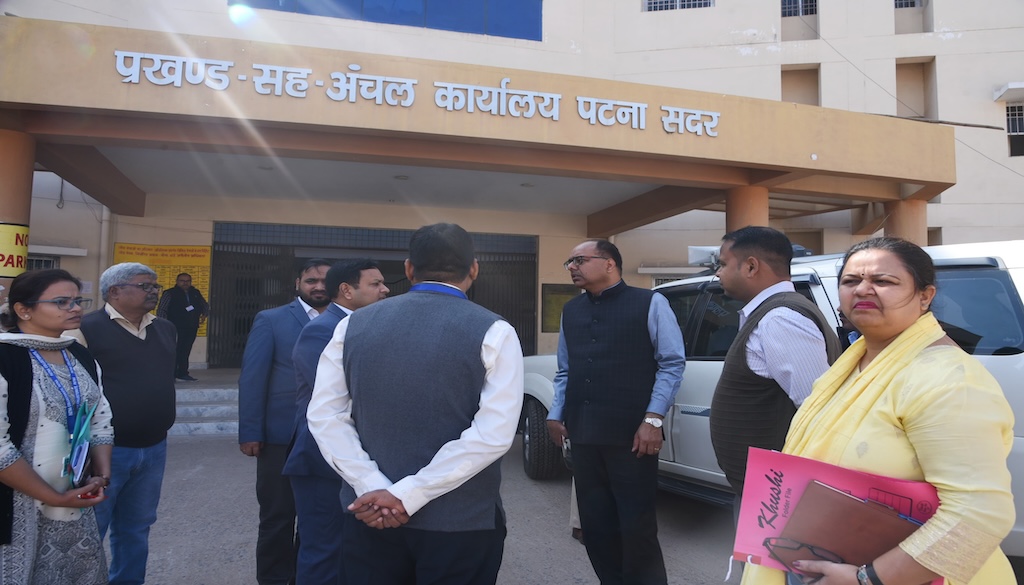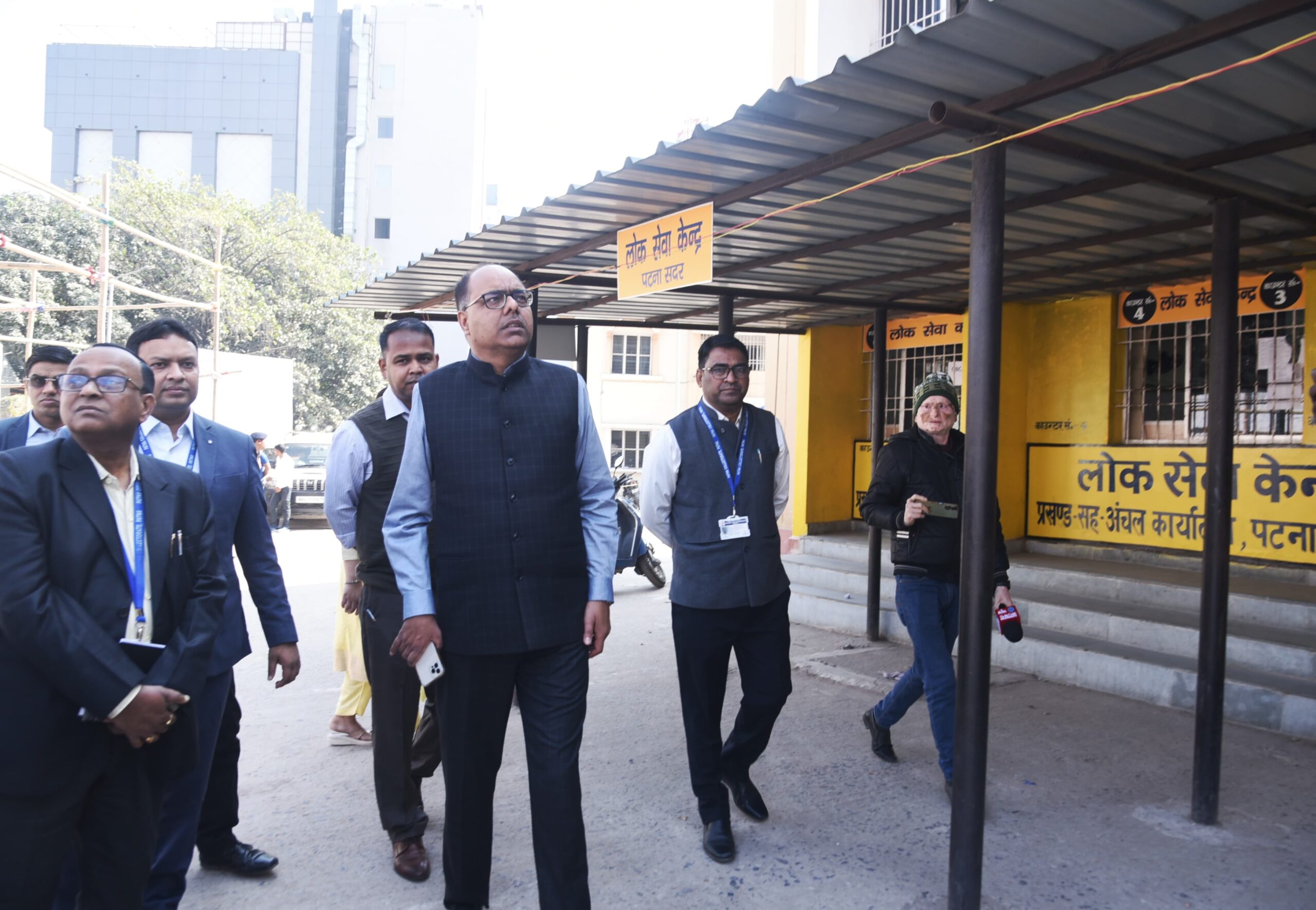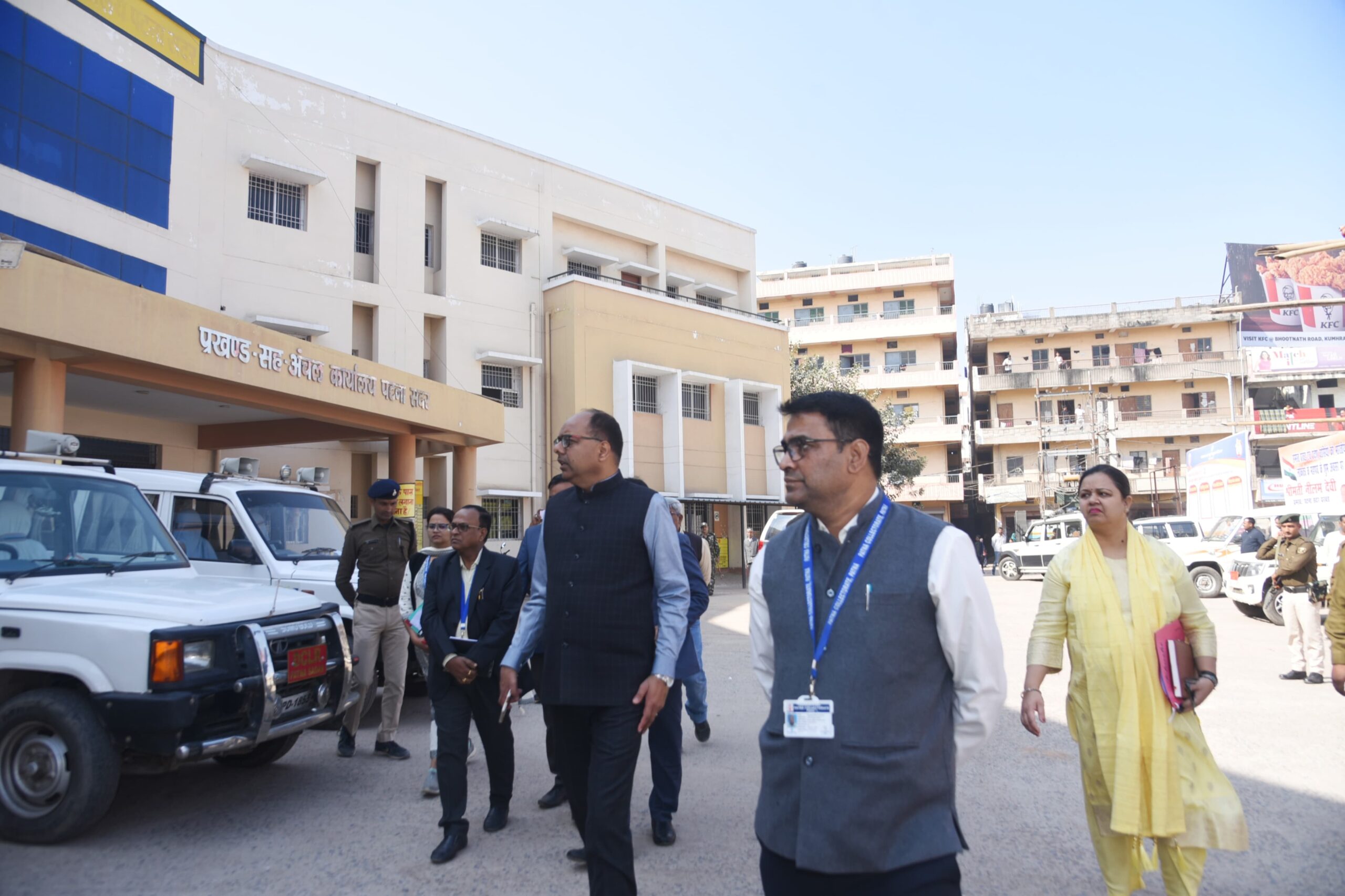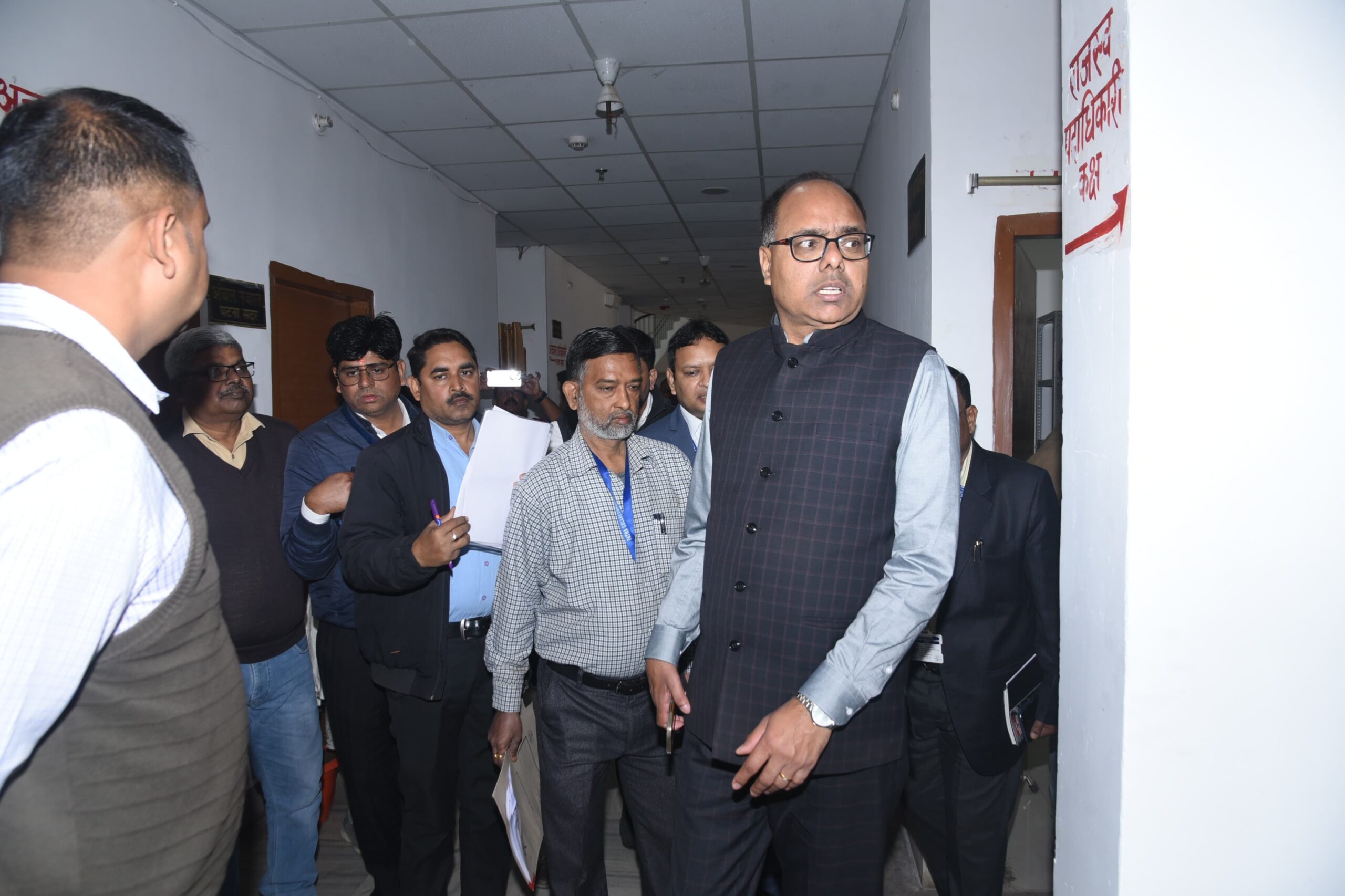Patna DM Inspects Newly Created Zonal Offices, Orders Swift Action on Pending Revenue Cases

Patna: Patna District Magistrate, Dr. Chandrashekhar Singh, conducted a surprise inspection of the four newly created zonal offices—Patna Sadar, Patna City, Pataliputra, and Didarganj—on Thursday. The DM issued strict instructions for the timely disposal of revenue-related cases, particularly those pending for over 75 days, and emphasized the need for employees to maintain punctuality.
During his visit to the Kumhrar Block-cum-Zonal Office at 10.45 am, Dr. Singh inspected the Public Service Centre (RTPS counter), official cells, and various administrative offices. A review meeting followed, during which officials and employees discussed operational challenges, including technical issues and staffing shortages. The DM assured them that these concerns would be addressed promptly.
Strengthening Revenue Administration
The state government approved the division of Patna Sadar Zone into four separate zones on August 21, 2024, aiming to streamline revenue administration and improve public services. The offices of these newly created zones are currently operating from the Kumhrar Block-cum-Zonal Office as an interim measure. Meanwhile, the District Treasury and the Liquor Prohibition and Excise Office have shifted to the newly constructed Patna Collectorate building. The administration has confirmed that there is adequate space at Kumhrar to support these zones until permanent facilities are built.
Dr. Singh noted that the transition was progressing well, with zonal officers taking proactive steps to implement the new system. He directed officials to ensure that the public receives efficient services without inconvenience and mandated proper maintenance of all revenue-related registers.
To reinforce supervision, the DM assigned Land Reforms Deputy Collectors to oversee revenue administration in the new zones. The District Establishment Deputy Collector was instructed to submit a proposal for additional staff, while the District Treasury Officer was tasked with ensuring financial compliance for the newly formed offices. The Additional Collector was assigned overall supervisory responsibility.
Reorganizing Revenue Records and Public Services

The Revenue and Land Reforms Department has started reorganizing revenue-related records, while the General Administration Department is working to divide public services—such as caste, income, and residential certificates—across the four zones. Officials assured the DM that all technical formalities would be completed soon.
To facilitate smooth operations in the new zones, the district administration has reassigned 23 officers and employees. Revenue Officer Rajiv Ranjan has been posted to Pataliputra Zone, Mamta Rani to Patna City Zone, and Vinay Kumar Choudhary to Didarganj Zone. Additional clerical staff, revenue employees, and office attendants have also been deputed to each zone.
Accountability and Performance Monitoring
During the inspection, Dr. Singh found that most employees were performing their duties diligently. However, some instances of absenteeism were noted. Anchal Amin Priyanka Gupta of Didarganj Zone had been absent without authorization for two days (4-5 February), while two employees at Patliputra Zone—Head Clerk Pramod Kumar Pankaj and Office Peon Neelam Kumari—were also found missing. While Pankaj later reported to duty, the DM ordered their salaries for the day to be withheld pending clarification. He instructed zonal officers to enforce strict attendance policies and maintain a professional work culture.
Tackling Pending Revenue Cases

The DM reviewed the backlog of revenue cases and ordered their expedited resolution. He noted that:
- E-mutation cases pending for over 75 days included 317 in Patna Sadar, 544 in Patna City, 1,367 in Didarganj, and 572 in Pataliputra.
- Parimarjan Plus cases (correction in digitized Jamabandi) stood at 3,206, while non-digitized Jamabandi cases numbered 3,832.
- Naapivaad (measurement disputes) and BLDRA cases (mutation appeals) were also accumulating.
Dr. Singh directed zonal officers to prioritize these cases and clear them promptly. He instructed Land Reforms Sub-Collectors to expedite BLDRA and mutation appeals, ensuring that cases pending for over 90 days are resolved as per legal guidelines. Additionally, he emphasized the need to speed up Aadhaar seeding for Jamabandi records and ensure eligible beneficiaries receive benefits under the Abhiyan Basera scheme.
To facilitate land acquisition processes, the Additional Collector was instructed to assign one Amin per zone. Each zonal officer was directed to submit proposals for necessary staffing and resources.
The Need for Administrative Reforms

Dr. Singh explained that before the reorganization, Patna Sadar Zone covered an extensive area spanning two subdivisions—Patna Sadar and Patna City—along with six urban zones, 75 municipal wards, and seven rural panchayats. The zone had 33 police stations, making land dispute resolution meetings cumbersome. Additionally, its jurisdiction covered four legislative assemblies, complicating election duties.
The workload in Patna Sadar Zone was disproportionately high, with:
- Mutation cases at 304% above the average,
- Caste/income/residential certificate applications at 641%,
- Measurement disputes at 415%,
- Land dispute cases at 250%,
- Encroachment cases at 286%,
- Public complaints at 446%, and
- High Court-related matters at a staggering 1,372%.
Due to these challenges, the Patna district administration proposed restructuring the zone, and the state government approved the creation of four new zones in a cabinet meeting on 21 August 2024. The rationalization of administrative units, including Halkas, Mauzas, and police station jurisdictions, is expected to facilitate smoother revenue administration and improve public service delivery.






